June 19, 2020
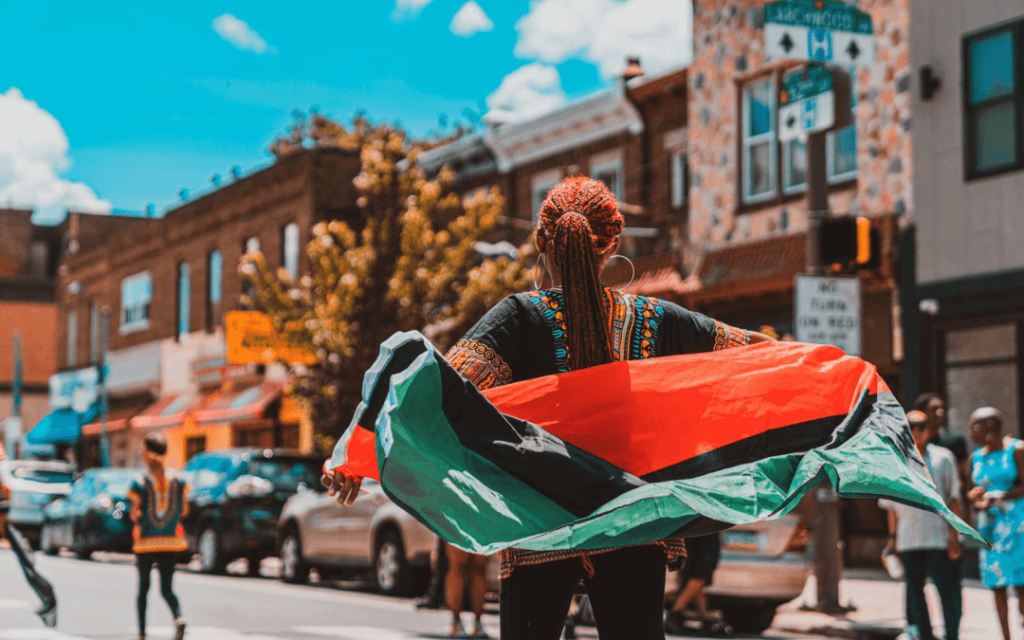
As anti-racist protests continue to shake the U.S. and other parts of the world, some officials expressed worry that they could cause spikes in coronavirus cases. Additionally, some of the aggressive police responses to protests, like tear gas and pepper spray have been demonstrated to further enhance the possibility of transmission. Latin America remains the epicenter of the virus with devastating implications for the region’s politics and people.

Friday marks Juneteenth, also known as Freedom Day, in the United States, which marks the effective end of slavery in the United States. Disregarding the significance of the holiday, President Donald Trump announced his intention to hold a rally in Oklahoma, but rescheduled to Saturday after met with backlash. This decision comes as the Black Lives Matter movement continues to rage across the country against the deep racial inequities felt in the country and long-standing police brutality against people of colour. Meanwhile, infections have been increasing in much of the U.S., indicating the country is due for a second wave of coronavirus. The virus has reportedly left more Americans dead than the First World War.

Twenty Indian soldiers died after a violent clash with Chinese troops along the countries’ de facto border in the Himalayas. The deaths are the first military casualties along the disputed border for more than 40 years. China has reportedly also freed ten Indian soldiers seized during the clash. U.S. President Donald Trump signed a law to introduce sanctions punishing Chinese officials for human rights abuses against the Uighur Muslim minority in the country. In response, China promised to “resolutely take countermeasures.” A new outbreak of coronavirus in Beijing’s wholesale food market has infected more than 100 people and prompted authorities to elevate official emergency response in what they have called an “extremely severe” situation.
China’s top legislative body drafted a national security law for Hong Kong on Thursday, covering four categories of crimes: succession, subversion of state power, local terrorist activities and collaborating with foreign or external foreign forces to endanger national security. The draft law has been put before the standing committee of the National People’s Congress, indicating Beijing’s intention to rush the legislation through. The Taiwanese government recently announced a humanitarian aid plan that includes a basic living allowance to Hongkongers seeking asylum from government prosecution in connection to anti-government protests.

The United Nations has launched a new five-year project in Myanmar to document all forests and pinpoint deforestation risks. A new report on ongoing clashes in the Rakhine State has found that more than 20 civilians were killed and 100 injured in landmine blasts from January to May this year. The Myanmar government recently launched a tribunal to investigate a controversial China-backed city development project near the Thai border in Karen State. The project has been criticized for the influx of Chinese money and suspected illicit activity.

In Harare this week, healthcare workers went on strike and protested after the government cut their wages by half. As a result, the government announced an immediate 50% increase in civil servants and pensioners wages.
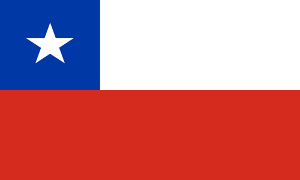
On Wednesday, Chilean authorities revealed that a series of accounting glitches resulted in the omission of more than 31,000 confirmed coronavirus cases, an error stemming back to mid-March. Only last week, the Health Minister resigned due to controversy over the reporting of coronavirus-related deaths. On Monday, the lockdown was extended for at least an additional 90 days. Meanwhile, for Indigenous people in the country, the U.S. race protests reportedly reflect their own struggle against deep racial inequities in Chilean society.
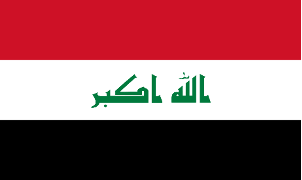
In a report released on the 16th of June, the Human Rights Watch has called on the Iraqi authorities to “amend laws that limit free speech to comply with international law.” Iraqian authorities, including the Kurdistan Region, have frequently used vaguely worded laws to bring criminal charges against individuals and groups expressing opposing opinions to the government. The report, “We Might Call You in at Any Time: Free Speech Under Threat in Iraq” details numerous cases of the violation of the right to free expression during widespread protests at the end of the former government’s term. Meanwhile, on Thursday, rockets hit Baghdad’s green zone, the location of the US embassy. This is assumed to be the fifth instance in a series of similar attacks across the country in the past 10 days.
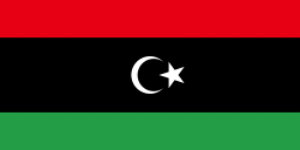
The Human Rights Watch reported on June 16th that the Libyan Arab Armed Forces (LAAF) should urgently investigate evidence that fighters affiliated with it apparently tortured, summarily executed, and desecrated corpses of opposing fighters. On a separate note, ceasefire negotiations in Libya have been mired with uncertainty over the past week, after heavy clashes erupted as the Turkish supported Government of National Accord (GNA) laid siege to the Russia-backed Libyan National Army-held (LNA) Sirte, close to major energy export terminals on the Mediterranean seaboard, and the postponement of ministerial ceasefire talks planned for Sunday between Russia and Turkey.

The United States’ “Caesar Syria Civilian Protection Act of 2019” came into effect on Wednesday, 17th of June. The Act aims to “promote accountability for the regime’s atrocities” and to promote a peaceful political transition. These sanctions authorize the US president to impose economic sanctions and travel restrictions on any foreign person who supports the Syrian government in any material way. US Secretary of State, Mike Pompeo, announced that currently sanctions would be imposed on 39 individuals and entities under the act, including Asma al-Assad, the wife of President Bashar al-Assad.
Further, seven syrians have submitted a criminal complaint to prosecutors in Germany for allegedly suffering and witnessing sexual abuse in detention centers under President al-Assad. Meanwhile, the U.N. is considering a proposal to reopen a border crossing from Iraq into Syria for six months to allow the delivery of humanitarian aid following the repercussions of the novel coronavirus and the devaluation of the Syrian pound.

On the 18th of June, Demonstrators blocked the Jounieh-Beirut highway with burning tires in protest of the arrest of activist Michel Chamoun. Chamoun was arrested in the morning for posting a video online calling President Michel Aoun’s rule a “humiliation” in response to new presidential defamation laws introduced earlier in the week. Lebanon’s state prosecutor issued an order that decreed suing individuals who posted materials specifically on social media that were deemed insulting to the presidency. These tensions add to the ongoing protests across Lebanon calling for the government’s resignation following further economic deterioration during the coronavirus pandemic.
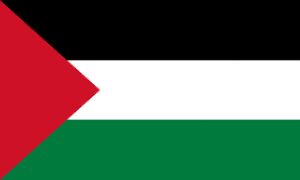
More than 50 United Nations Human rights experts have condemned the Israeli annexation plan of the West Bank, exclaiming that it is a “vision of a 21st Century Apartheid.” Israel has reportedly began the construction of a ring road that links Israeli settlements and outposts while isolating East Jerusalem, undermining the possibility of East Jerusalem as the capital of the Palestinian state. Tensions regarding the annexation grow as Israeli soldiers shot and killed Palestinian settlers in the north of the West Banks when they attempted to stop Israeli extremists from setting their farms lands on fire.
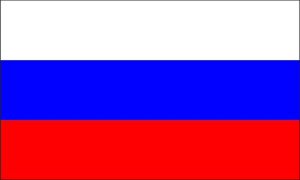
The U.S. Africa Command (AFRICOM) alleged that Russia has deployed fighter jets in Libya to support Khalifa Haftar’s Libyan National Army. AFRICOM raised concerns about the Russian aircraft’s noncompliance with laws of armed conflict. German prosecutors recently announced murder charges against a Russian accused of assasinating a Georgian refugee in Berlin last year, prompting Russia to announce that it would retaliate. Russia has also accused one of its leading Arctic researchers of spying for China and divulging state security secrets. A new research study has revealed an obscure disinformation campaign by Russian operatives which flooded false stories in seven languages and across 300 social media platforms.

In an explosive rebuke to South Korea, North Korea blew up an inter-Korean liaison office on its side of the border. The provocation appears to have followed from tensions over grassroots activists sending anti-Kim Jong Un propaganda over the border, as well as over South Korea’s continued support for U.S.-led sanctions against Pyongyang. North Korea has also reportedly mobilized its military to move closer to frontlines near its neighbor.

25-year-old civil and labor rights activist Sepideh Qolyan (Gholian) is set to return back to prison for refusing to request a pardon from the Islamic Republic Supreme Leader Ali Khamenei. In a video on her Instagram page, Qolyan stated, “I refused. Therefore, I must report to Qarchak Prison next Sunday.” Qolyan was arrested in November 2018, for her involvement in the Haft Tapeh Sugar Mill protests and charged with “disseminating fake news” and “anti-Islamic Republic regime propaganda.” She was sentenced to 5 years in prison although was released in December 2019 on bail. Meanwhile, Iran fears a second wave of the novel coronavirus as the number of covid-19 related deaths spiked to over 100 deaths earlier this week, the highest number since the 13th of April.

The country continues to feel the hard impact of the coronavirus despite President Daniel Ortega’s rejection of this reality. In the past three months, at least six politicians have reportedly died, “express burials” for those killed by coronavirus continue throughout the nights, and doctors have allegedly been fired for countering the government’s approach.

Sudanese militia leader Ali Kushayb, charged with 50 crimes against humanity and war crimes in the Darfur conflict, was arrested last week, 13 years after a warrant was issued for him, and appeared before the International Criminal Court on Monday. In a different vein, Sudanese officials have announced the discovery of a mass grave southeast of the capital, Khartoum, suspected to contain the remains of conscripts who in 1998 tried escaping military service from a training camp.

The country’s Supreme Court reportedly ousted the leaders of two key opposition parties in advance of the parliamentary elections this year, which have not been formally scheduled. The decision spikes fear that President Nicolás Maduro is tampering with the upcoming vote, which will elect a new National Assembly, the only institution controlled by the opposition. As Venezuela extends its lockdown into July, the UN released a statement expressing concern over the many millions of Venezuelan refugees abroad, the world’s second-largest diaspora of refugees, who are hit particularly hard by the impacts of the virus.

The extended reign of President Jeanine Áñez, who took power following a coup in fall 2019, has been met with continued discontent across sectors of the population. On Friday, the leader of the Federation of Trade Unions of Mining Workers of Bolivia (FSTMB) warned the President that without elections in September, there will be a “people’s uprising.” His message was echoed by the leaders of the Central Obrera Boliviana (COB).